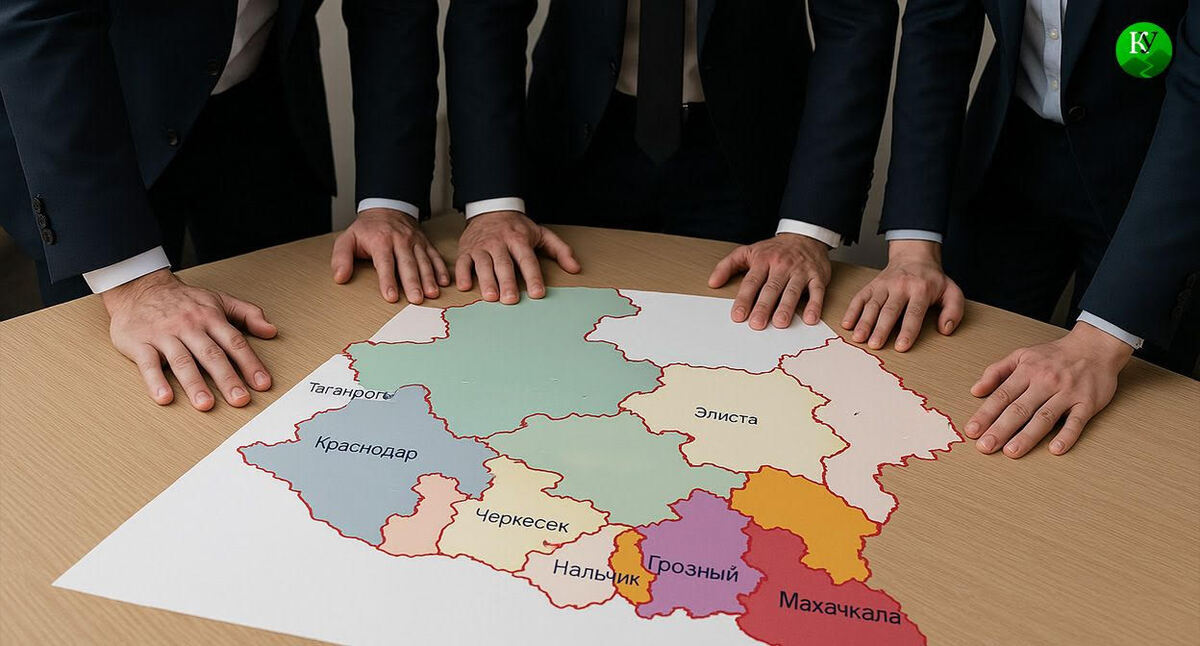Analysts assess prospects for switching to new self-government model for regions of Southern Russia
The switch to a single-level model of self-government is unfit for the republics of Northern Caucasus, as it breaks the established political alignments. However, even in the event of a transition to a new model, the negative effect for the republics of Southern Russia will be less than for other regions.
The changes in the territorial organization of local self-government are introduced in accordance with Federal Law No. 33-FZ. Regions are given the right to choose one of two options – to preserve the two-level system or to switch to a single-level one. The new law on local self-government comes into force on June 19.
The Kabardino-Balkarian and Karachay-Cherkessian Republics (KBR and KChR), Adygea, Kalmykia, Chechnya and the Rostov Region have decided to keep the two-level system of self-government. The Stavropol Territory has completely switched to a single-level model. Dagestan, the Krasnodar Territory and the Volgograd Region have decided to partially switch over to a single-level model. The authorities of Ingushetia, North Ossetia, and Astrakhan Region have declared their readiness to switch to the new model.
The municipal reform is an attempt to concentrate resources at one level, Sergey Zhavoronkov, a Moscow economist and political analyst, have suggested.
Enlargement is always a separation of power from the people.
“In reality, this reform will not add money at the lower level, since the amount allocated to districts will continue to be allocated. In my opinion, on the contrary, as much money as possible should be spent at the grassroots level. Enlargement is always a separation of power from the people," Mr Zhavoronkov has stated.
When speaking about the reasons for preserving (in whole or in part) the two-level model, he has explained that this happens in cases where the grassroots dwelling settlement turns out to be quite influential. A good example of this approach is Dagestan. "In national republics, such a reform breaks the political alignment. There are traditionally strong municipalities – they manage to stand up for themselves," he has noted.
When commenting on the fact that the Rostov Region has joined the group of national republics that retained the two-level self-government, Sergey Zhavoronkov has suggested that this is due to the size of the region's districts: when municipalities are liquidated, their residents will find it extremely inconvenient to get to district centres to receive this or that service. He has stressed that enlargement also leads to a decrease in the attention of officials to lower-level settlements. "They are simply not accustomed to taking care of them; they only took care of district centres and that's it," Mr Zhavoronkov has concluded.
In Northern Caucasus, where districts are relatively small, residents will be able to more or less receive the necessary social services in the district centre.
Alexander Kynev, a political analyst, believes that basically, national republics are in favour of the two-level system, since it allows maintaining the balance that has developed there among various elite groups.
"As for the usefulness of this reform in general, everything depends on the region. In Northern Caucasus, where districts are relatively small, residents will be able to more or less receive the necessary social services in the district centre. But, for example, in the Krasnoyarsk Territory, where some districts are the size of an entire country, this will be extremely difficult to do," he has emphasized.
Mr Kynev has also noted that he finds it necessary to preserve local self-government in remote areas, in places of compact residence of national minorities. In his opinion, the reform is most actively promoted by the officials who are more focused on passing the correct indicators "up".
He has emphasized that the transition to a single-level management model will lead to further depopulation of small settlements. "I have seen this in the example of the regions abolished in the 2000s. First, the branches of federal agencies located in the former region disappear; then, the funding is cut, specialists start leaving; and other people follow them. I am very afraid that the liquidation of the village self-government will have a similar effect," Alexander Kynev has noted.
However, in his opinion, this problem will be most acute not in Northern Caucasus, but in Siberia and the Far East.
Natalia Zubarevich, Professor of the Division of Russia’s Economic and Social Geography at the Geography Department of the Moscow State University, believes that the economic effect of the transition to a single-level model is difficult to calculate.
Of course, in the case of remote mountain villages, this problem will also be quite acute.
Ms Zubarevich has emphasized that the negative effect of the need to travel to the district centre instead of one’s local municipal council will have a lesser impact on residents of the densely populated Southern Russia than on residents of sparsely populated non-black earth regions. “Of course, in the case of remote mountain villages this problem will also be quite acute," she has noted.
She treats as incorrect the statement that with the transfer of power to the district level, officials will forget about lower settlements. "Here, everything depended and will depend on the instructions from above; what they prescribe there, that is what will be received at the bottom," she has stated.
This was originally published on the Russian page of 24/7 Internet agency ‘Caucasian Knot’ on June 3, 2025 at 04:46 am MSK. To access the full text of the article, click here.
Source: CK correspondent






![Tumso Abdurakhmanov. Screenshot from video posted by Abu-Saddam Shishani [LIVE] http://www.youtube.com/watch?v=mIR3s7AB0Uw Tumso Abdurakhmanov. Screenshot from video posted by Abu-Saddam Shishani [LIVE] http://www.youtube.com/watch?v=mIR3s7AB0Uw](/system/uploads/article_image/image/0001/18460/main_image_Tumso.jpg)